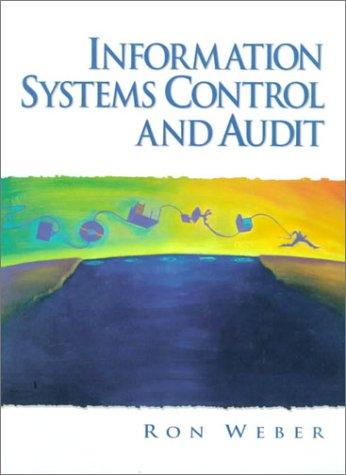Farm Equipment Supplies Limited (FESL) is a major manufacturer of equipment to support primary producers based in
Question:
Farm Equipment Supplies Limited (FESL) is a major manufacturer of equipment to support primary producers based in Cleveland, Ohio. To control its overall manufacturing costs, FESL uses a just-in-time inventory system in conjunction with a material requirements planning system. Although stockouts of component parts have occurred occasionally in the past, overall the system has been very successful. It has enabled FESL to gradually expand its share of the market for farm equipment by containing its costs, even through the slow-growth periods associated with depressed prices for primary production.
Fundamental to the success of FESL's just-in-time and material requirements planning systems has been an EDI system that FESL has established with its component suppliers. Long-term contracts have been written with several suppliers, and a private EDI network has been established with the suppliers to enable exchange of information. The reliability of this network is critical to FESL being able to meet its manufacturing schedule and to satisfying its customers, demands on a timely basis.
As the manager of internal audit for FESL, one day you are called to a meeting with the president of FESL, the vice-president of manufacturing, and the vice-president of information systems. A major problem has arisen as a result of program maintenance work being carried out on the EDI system. An error was introduced into one of the reordering programs that transmits orders to suppliers to replenish the kanbans (inventory bins) on the production floor. As products were completed, backflush transactions were initiated to increase finished goods inventory and to reduce raw materials and workin-process inventories. The program did not correctly identify when some of the kanbans needed to be replenished, however. As a result, orders on suppliers were submitted late. Moreover, some orders were transmitted to the wrong supplier. Significant losses have now been incurred. The production process has come to a standstill because inventory has not been delivered on time to some kanbans. The president is also concerned about lost sales that may occur because finished goods now cannot be delivered on time to some of FESL's major customers.
The vice-president of information systems indicates that she has now put in place some additional controls to further reduce the likelihood of errors being introduced into programs as a result of the maintenance process. She points out, however, that the EDI system is now very complex and that maintenance of the system is becoming an increasingly difficult task. She believes it is unrealistic to expect that errors will not occur again at some time in the future.
Required: The president asks you to prepare a report describing some controls that could be put in place to identify
(a) when EDI output (e.g., orders on suppliers) is not being dispatched on a timely basis, and
(b) when the output has been dispatched to the wrong recipient. He asks you to assume that programming errors may once again occur, and he wants to know, therefore, whether any cost-effective compensating controls can be implemented. Write a brief report outlining any controls you think might be put in place to reduce the exposures that concern the president. Remember, your recommendations should include only controls that are likely to be cost-effective.
Step by Step Answer:






